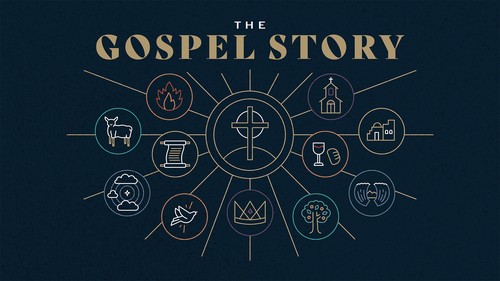The Gospel Story - Week 26

The Fall of Jerusalem
Read
2 Kings 25:1–12; Jeremiah 29:1–23
Jerusalem has fallen. The sin of the people of Israel and their continual refusal to follow the commands of God, despite continual grace, has resulted in their capture and exile in Babylon. God, through the prophet Jeremiah, was combating the preaching of false prophets that were giving a false hope to the people of Israel. The prophet takes on powerful representatives of the royal-temple establishment who are “absolutely sure” that the embattled systems of the city will remain intact despite Babylon’s onslaught. Jeremiah rejects their optimism, arguing that authentic hope must bear the scars of disaster and embrace the harsh realities of the shattered world (Jer 27–29).
The hard lesson and call for the people of Israel was that they needed to come to terms with the reality of the brokenness they created. They were not to rage against their exile reality nor were they to sit idly until God swooped in to rescue them, rather, they were to learn to live, work, navigate and even thrive in the midst of their brokenness. While they were given a future to hope for as God would work out His ultimate plan for them to renew them as a people, what is equally important is that they relearn to trust God in the midst of their shattered world. They had become too complacent and unfaithful in the comfort of the covenant realities and needed this relearning process as a people.
What can we learn through this narrative that we witness between God and his people? Ultimately, that complacency corrupts the covenant that we have with God. Truthfully, the process that the Israelites are going through in this narrative is not dis-similar to what we may go through as disciples or a church if we get to the point of complacency. At times we need to relearn what it means for us to live, work, navigate, and thrive in the brokenness and shattered reality of our world. In spite of this, there is a hope that we hold on to and offer to the world. When the people of God champion this hope, the world will see Jesus embodied. The writer of Hebrews is correct, without holiness no one will see the Lord.
The hard lesson and call for the people of Israel was that they needed to come to terms with the reality of the brokenness they created. They were not to rage against their exile reality nor were they to sit idly until God swooped in to rescue them, rather, they were to learn to live, work, navigate and even thrive in the midst of their brokenness. While they were given a future to hope for as God would work out His ultimate plan for them to renew them as a people, what is equally important is that they relearn to trust God in the midst of their shattered world. They had become too complacent and unfaithful in the comfort of the covenant realities and needed this relearning process as a people.
What can we learn through this narrative that we witness between God and his people? Ultimately, that complacency corrupts the covenant that we have with God. Truthfully, the process that the Israelites are going through in this narrative is not dis-similar to what we may go through as disciples or a church if we get to the point of complacency. At times we need to relearn what it means for us to live, work, navigate, and thrive in the brokenness and shattered reality of our world. In spite of this, there is a hope that we hold on to and offer to the world. When the people of God champion this hope, the world will see Jesus embodied. The writer of Hebrews is correct, without holiness no one will see the Lord.
Questions
- Where do you feel the most at home or at ease? In your house? In your community? Surrounded by others or spending time alone? (There isn’t a correct answer) Now, where do you feel more out of place or uncomfortable? Compare your answers.
- If you were in the shoes of the Hebrew people during this time, do you think you would be more inclined to fight against the structure, sit idly waiting for God to “swoop in” and save you, or actively seek the good of the nation that just conquered you?
- Have you ever had misplaced optimism about something and then needed to deal with the reality of the situation? Are you more likely to be an optimist or a pessimist most of the time?
- How do you feel like you can embody the hope of the embodied Jesus this week in your context? How can we be present and loving with people in our contexts while still pointing toward a Kingdom that is not fully realized yet?
Supporting Resources
Posted in The Gospel Story
Recent
Archive
2025
August
2023
2022
June
July
August
September
October
November

No Comments